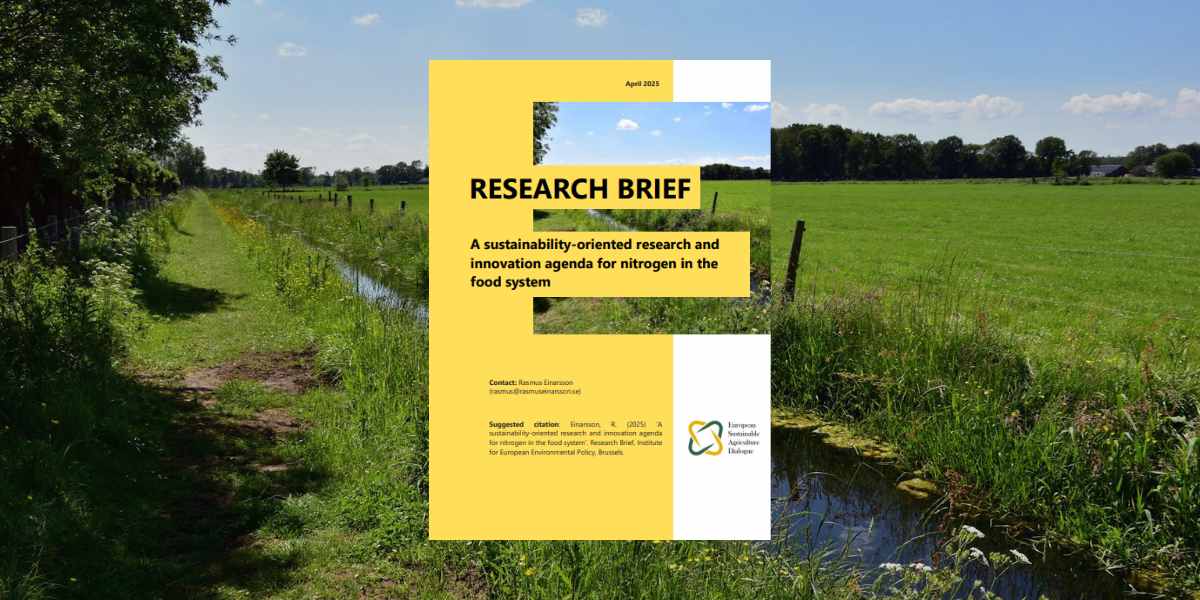AUTHOR: Rasmus Einarsson, researcher at the Swedish University of Agricultural Sciences
This brief addresses the dual role of nitrogen in food systems as both an essential nutrient for all life forms, and as a pollutant and contributor to Greenhouse Gas emissions and presents a research agenda with recommendations to improve nitrogen management at a system level.
Nitrogen is essential for agricultural productivity. However, it is also a significant pollutant. Many agricultural activities emit nitrogen compounds in different forms: ammonia, nitrous oxide, and nitrates. These compounds exacerbate air pollution, climate change and biodiversity loss. Good management of nitrogen is essential for sustainable food systems.
Large reductions in nitrogen emissions from food systems are possible through a combination of agricultural efficiency improvements, waste reduction, and dietary shifts. Together, these approaches could potentially meet the ambitious reduction targets set globally and in the EU.
The main nitrogen problem is arguably not a lack of solutions but rather a failure to implement them on a scale in ways that are both effective and socially acceptable. In line with this diagnosis, this brief presents a research agenda to refocus on wider implications of systemic change beyond biological and physical solutions.
The agenda is constituted of 5 overarching recommendations and 13 specific research priorities grouped in broad research areas. The overarching recommendations are as follows:
- Adopt a food systems approach – accounting for a broad range of sustainability outcomes, trade-offs, co-benefits and promoting inter and trans-disciplinarity.
- Develop and evaluate solutions for nitrogen in the food system – with the largest potential for change found in agriculture.
- Refine methods to assess impacts of nitrogen pollution – including improved understanding of the legacy effects that play out over time
- Expand and improve datasets on nitrogen in the food system – there is a lack of reliable data on key variables such as feed and fertiliser use, agricultural practices and waste management.
- Develop future scenarios and assess policy options – based on rigorous policy-relevant information to respond to the challenges ahead.

